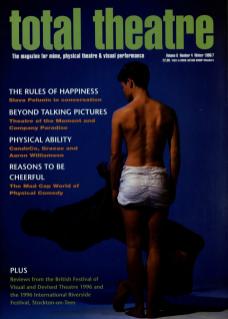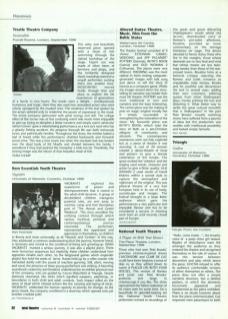Those who had seen Pete Brooks' previous cinema-inspired shows L’Ascensore and Clair de Luz could have been forgiven a sense of deja vu as they settled down to watch A Plague on Both Your Houses. This version of Romeo and Juliet saw Pete Brooks' aesthetic writ large, in cinemascope if you like. The show represented the fullest realisation of his vision seen for some time. On a beautifully lit splendid-looking set the National Youth Theatre performers mimed to recordings of the great and good delivering Shakespeare's words whilst the laconic, disembodied voice of Romeo's pre-Juliet affections, Rosaline, provided an ironic commentary on the teenage histrionics on stage. This device elevated to heroic status those who live in the margins, those whose demands are no less final and vivid but whose means are less teenmag tawdry than those of the starcrossed lovers. Rosaline hints at a feminist critique rejecting the Romeo and Juliet romance as unpalatable male fantasy. Brooks and his youthful cast deconstruct the text in several ways: adding their own comment, pilfering quotes from other Shakespeare plays, merely printing the text and distorting it. What better way to tackle the great cultural monolith that is Shakespeare? In the past Pete Brooks' visually ravishing shows have suffered from a paucity of ideas but this production was swollen with intellectual possibility and looked simply fantastic.

